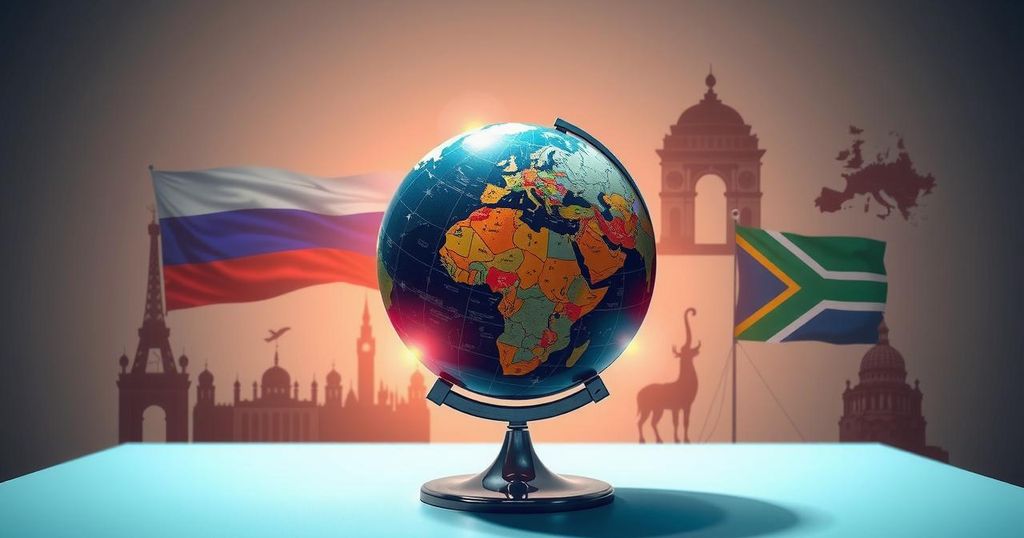Russian Foreign Minister Sergey Lavrov joined top European diplomats for a G20 meeting in South Africa, while U.S. Secretary of State Marco Rubio was absent, reflecting heightened tensions over South Africa’s policies. The meeting addressed issues such as support for Ukraine and the challenges faced by developing nations, amid criticisms of the Trump administration’s approach to international relations.
Russian Foreign Minister Sergey Lavrov participated in a G20 foreign ministers’ meeting on February 20, 2025, in Johannesburg, South Africa, alongside prominent European diplomats. Notably absent was U.S. Secretary of State Marco Rubio, who opted to skip the meeting amid rising tensions with South Africa over its policies. The U.S. is represented by Acting Ambassador Dana Brown instead of Secretary Rubio, who has criticized South Africa’s stance against the U.S.
This G20 gathering comes two days after significant discussions between the U.S. and Russia regarding the ongoing war in Ukraine, which excluded key European allies. Meanwhile, President Donald Trump recently questioned Ukrainian President Volodymyr Zelenskyy’s role while exacerbating Western challenges amidst Ukraine’s struggle against Russian aggression. The meeting serves as a platform for European representatives to assert their unified support for Ukraine.
South Africa aims to utilize its role as G20 president to address pressing issues affecting the developing world, including climate change and debt relief, while acknowledging the global geopolitical tensions as a critical discussion point. President Cyril Ramaphosa highlighted the need for serious dialogue among the major economic powers on these pressing global matters.
Ramaphosa also remarked on the lack of consensus regarding responses to geopolitical issues among G20 countries. Rubio’s absence, coupled with Treasury Secretary Scott Bessent’s decision to miss the upcoming G20 finance ministers’ meeting, exemplifies the diminished U.S. engagement in global collaborations under the Trump administration’s America First policy. This undermines the G20’s mission to foster global economic stability and cooperation.
Rising tensions manifested through punitive U.S. measures against South Africa, including a recent executive order halting all U.S. aid to the country. This action followed criticisms of South Africa’s alleged anti-American sentiments and its international stances concerning Israel and other geopolitical matters. Rubio’s dismissal of South Africa’s G20 themes raises questions regarding U.S. diplomacy in the forum and its commitment to tackling shared global challenges.
Despite the U.S. setbacks, South African officials have downplayed the significance of Rubio’s absence, asserting it does not equate to a total boycott of the G20. Foreign Minister Ronald Lamola emphasized that the U.S. still participates in the G20 through other channels, notwithstanding the political frictions displayed by key U.S. officials.
In summary, the G20 meeting in South Africa highlighted critical discussions on global issues involving top diplomats, with Russian Foreign Minister Sergey Lavrov present while U.S. Secretary of State Marco Rubio notably abstained. The ongoing geopolitical tensions, particularly concerning the Russia-Ukraine conflict, were at the forefront, with European nations emphasizing their commitment to supporting Ukraine. The U.S.’s diminishing role in the G20 raises concerns about the effectiveness of international collaboration, particularly under the current administration’s policies.
Original Source: apnews.com






